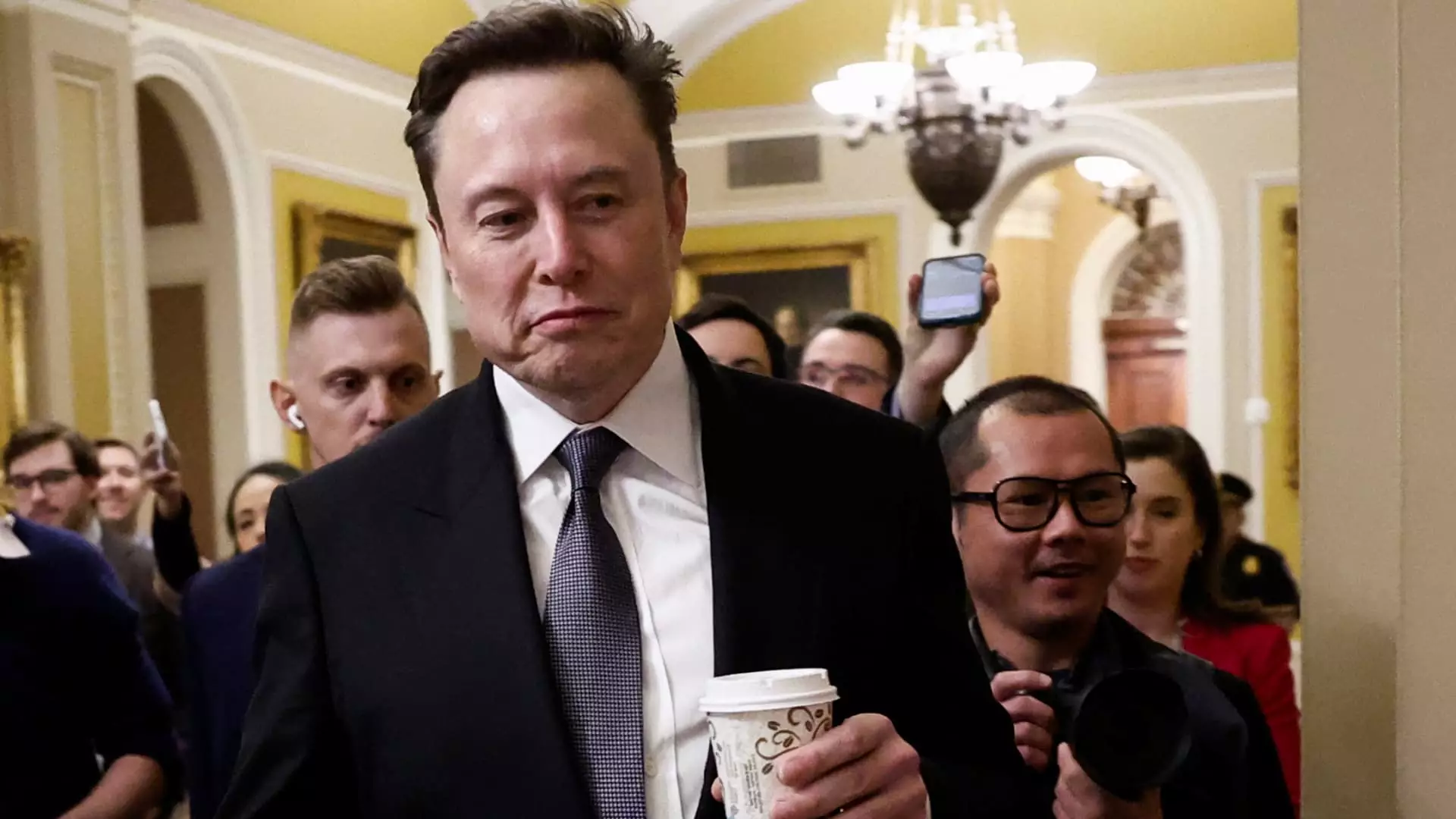The interplay between business interests and political dynamics often leads to complex scenarios, revealing the leverage that influential figures can exert over important legislative decisions. This is exemplified in the recent controversy surrounding House Democrats Jim McGovern and Rosa DeLauro, who sharply criticized their Republican colleagues for allegedly bowing to the influence of prominent entrepreneur Elon Musk. As the U.S. grappled with the potential of a government shutdown, Musk’s role in shaping policy regarding investments in China garnered substantial attention, shining a light on the intricacies of bipartisan negotiations affected by corporate interests.
House Democrats voiced disappointment over a stalled bipartisan government funding bill that aimed to impose regulations on U.S. investments within China. Their primary contention was that the Republican leadership had succumbed to pressure from Musk, primarily known for his ventures with Tesla and SpaceX. McGovern lamented the missed opportunity to fortify American technological prowess, particularly in the fields of artificial intelligence and quantum computing. He accused Musk of prioritizing his corporate interests over national security, highlighting an ongoing trend where the ambitions of a billionaire can overshadow legislative intentions.
The discussion surrounding Musk is not merely about personal influence; it reflects a broader issue of how corporate leaders wield power in the political arena to shape policies that align with their business interests. Remarkably, Tesla’s operational presence in China, including its factory and battery plant in Shanghai, puts Musk in a position where fostering positive relations with the Chinese government is essential for the continued success of his enterprises. Through this lens, McGovern portrayed the legislation as vital not only for economic security but also for safeguarding jobs in an increasingly globalized technological landscape.
The geopolitical ramifications of Musk’s business decisions extend beyond the confines of the boardroom. DeLauro’s remarks bring forth concerns regarding Musk’s engagements with the Chinese Communist Party and highlight the potential national security risks associated with his partnerships. Her letter implied that a significant figure wielding such influence in Washington should not be overly aligned with foreign governments that have contentious relationships with the U.S.
This raises critical questions about the balance of power between business and national security. The recent choice of SpaceX to withhold its Starlink internet service over Taiwan, reportedly due to pressures from Chinese and Russian authorities, highlights the uncomfortable reality that corporate interests can have profound implications on strategic geopolitical stances. The status of Taiwan—a fiercely autonomous nation claimed by China—serves as a focal point in U.S.-China relations, illustrating the stakes involved when a central figure influences policy decisions regarding international relations.
The fallout from Musk’s involvement introduces an intricate layer of political maneuvering, particularly in the context of the ongoing rivalry between parties. Musk’s derogatory critique of DeLauro and his apparent support of former President Trump signal a rift that complicates bipartisan cooperation and diminishes the potential for constructive dialogue. As Musk consolidates his position as a crucial ally to Trump, his actions suggest that political allegiance may, at times, eclipse broader legislative goals.
Notably, Trump’s desire to suppress the funding bill in favor of an alternative that would accommodate his own agenda compounds the complexities faced by lawmakers. The negotiations surrounding debt limits and funding bills often intermingle with personal political ambitions, creating an environment where legislative goals are vulnerable to the influences of powerful individuals. Consequently, the significance of Musk’s financial backing of Trump could serve not only to influence policy but also to reshape the political landscape as Musk finds a foothold in the highest echelons of power.
The recent developments involving Musk underscore a pressing concern regarding the intersection of corporate interests, political influence, and national security. As individuals like Musk gain prominence within political circles, lawmakers must grapple with the implications of allowing business interests to reshape critical legislation. The invitation to scrutinize this dynamic serves as a call to action for politicians to reaffirm their commitment to the electorate and national priorities, while simultaneously navigating the challenges posed by the pervasive influence of wealthy stakeholders. In a political climate that increasingly values power over principles, the need for accountability and clear boundaries between business and governance is paramount for the health of democratic institutions.


Leave a Reply